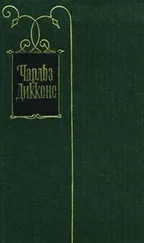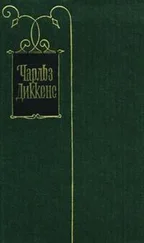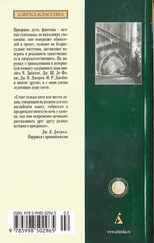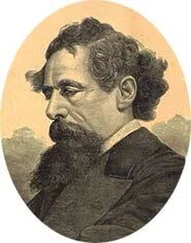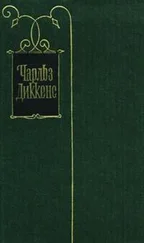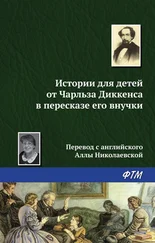Чарльз Диккенс - Dombey and Son
Здесь есть возможность читать онлайн «Чарльз Диккенс - Dombey and Son» — ознакомительный отрывок электронной книги совершенно бесплатно, а после прочтения отрывка купить полную версию. В некоторых случаях можно слушать аудио, скачать через торрент в формате fb2 и присутствует краткое содержание. Жанр: foreign_antique, foreign_prose, на английском языке. Описание произведения, (предисловие) а так же отзывы посетителей доступны на портале библиотеки ЛибКат.
- Название:Dombey and Son
- Автор:
- Жанр:
- Год:неизвестен
- ISBN:нет данных
- Рейтинг книги:4 / 5. Голосов: 1
-
Избранное:Добавить в избранное
- Отзывы:
-
Ваша оценка:
- 80
- 1
- 2
- 3
- 4
- 5
Dombey and Son: краткое содержание, описание и аннотация
Предлагаем к чтению аннотацию, описание, краткое содержание или предисловие (зависит от того, что написал сам автор книги «Dombey and Son»). Если вы не нашли необходимую информацию о книге — напишите в комментариях, мы постараемся отыскать её.
Dombey and Son — читать онлайн ознакомительный отрывок
Ниже представлен текст книги, разбитый по страницам. Система сохранения места последней прочитанной страницы, позволяет с удобством читать онлайн бесплатно книгу «Dombey and Son», без необходимости каждый раз заново искать на чём Вы остановились. Поставьте закладку, и сможете в любой момент перейти на страницу, на которой закончили чтение.
Интервал:
Закладка:
‘Of this young gentleman, Mrs Blockitt.’
‘No, Sir, indeed. I remember when Miss Florence was born – ’
‘Ay, ay, ay,’ said Mr Dombey, bending over the basket bedstead, and slightly bending his brows at the same time. ‘Miss Florence was all very well, but this is another matter. This young gentleman has to accomplish a destiny. A destiny, little fellow!’ As he thus apostrophised the infant he raised one of his hands to his lips, and kissed it; then, seeming to fear that the action involved some compromise of his dignity, went, awkwardly enough, away.
Doctor Parker Peps, one of the Court Physicians, and a man of immense reputation for assisting at the increase of great families, was walking up and down the drawing-room with his hands behind him, to the unspeakable admiration of the family Surgeon, who had regularly puffed the case for the last six weeks, among all his patients, friends, and acquaintances, as one to which he was in hourly expectation day and night of being summoned, in conjunction with Doctor Parker Pep.
‘Well, Sir,’ said Doctor Parker Peps in a round, deep, sonorous voice, muffled for the occasion, like the knocker; ‘do you find that your dear lady is at all roused by your visit?’
‘Stimulated as it were?’ said the family practitioner faintly: bowing at the same time to the Doctor, as much as to say, ‘Excuse my putting in a word, but this is a valuable connexion.’
Mr Dombey was quite discomfited by the question. He had thought so little of the patient, that he was not in a condition to answer it. He said that it would be a satisfaction to him, if Doctor Parker Peps would walk upstairs again.
‘Good! We must not disguise from you, Sir,’ said Doctor Parker Peps, ‘that there is a want of power in Her Grace the Duchess – I beg your pardon; I confound names; I should say, in your amiable lady. That there is a certain degree of languor, and a general absence of elasticity, which we would rather – not – ’
‘See,’ interposed the family practitioner with another inclination of the head.
‘Quite so,’ said Doctor Parker Peps, ‘which we would rather not see. It would appear that the system of Lady Cankaby – excuse me: I should say of Mrs Dombey: I confuse the names of cases – ’
‘So very numerous,’ murmured the family practitioner – ‘can’t be expected I’m sure – quite wonderful if otherwise – Doctor Parker Peps’s West-End practice – ’
‘Thank you,’ said the Doctor, ‘quite so. It would appear, I was observing, that the system of our patient has sustained a shock, from which it can only hope to rally by a great and strong – ’
‘And vigorous,’ murmured the family practitioner.
‘Quite so,’ assented the Doctor – ‘and vigorous effort. Mr Pilkins here, who from his position of medical adviser in this family – no one better qualified to fill that position, I am sure.’
‘Oh!’ murmured the family practitioner. ‘“Praise from Sir Hubert Stanley!”’
‘You are good enough,’ returned Doctor Parker Peps, ‘to say so. Mr Pilkins who, from his position, is best acquainted with the patient’s constitution in its normal state (an acquaintance very valuable to us in forming our opinions in these occasions), is of opinion, with me, that Nature must be called upon to make a vigorous effort in this instance; and that if our interesting friend the Countess of Dombey – I beg your pardon; Mrs Dombey – should not be – ’
‘Able,’ said the family practitioner.
‘To make,’ said Doctor Parker Peps.
‘That effort,’ said the family practitioner.
‘Successfully,’ said they both together.
‘Then,’ added Doctor Parker Peps, alone and very gravely, ‘a crisis might arise, which we should both sincerely deplore.’
With that, they stood for a few seconds looking at the ground. Then, on the motion – made in dumb show – of Doctor Parker Peps, they went upstairs; the family practitioner opening the room door for that distinguished professional, and following him out, with most obsequious politeness.
To record of Mr Dombey that he was not in his way affected by this intelligence, would be to do him an injustice. He was not a man of whom it could properly be said that he was ever startled, or shocked; but he certainly had a sense within him, that if his wife should sicken and decay, he would be very sorry, and that he would find a something gone from among his plate and furniture, and other household possessions, which was well worth the having, and could not be lost without sincere regret. Though it would be a cool, business-like, gentlemanly, self-possessed regret, no doubt.
His meditations on the subject were soon interrupted, first by the rustling of garments on the staircase, and then by the sudden whisking into the room of a lady rather past the middle age than otherwise but dressed in a very juvenile manner, particularly as to the tightness of her bodice, who, running up to him with a kind of screw in her face and carriage, expressive of suppressed emotion, flung her arms around his neck, and said, in a choking voice,
‘My dear Paul! He’s quite a Dombey!’
‘Well, well!’ returned her brother – for Mr Dombey was her brother – ‘I think he is like the family. Don’t agitate yourself, Louisa.’
‘It’s very foolish of me,’ said Louisa, sitting down, and taking out her pocket-handkerchief, ‘but he’s – he’s such a perfect Dombey!’
Mr Dombey coughed.
‘It’s so extraordinary,’ said Louisa; smiling through her tears, which indeed were not overpowering, ‘as to be perfectly ridiculous. So completely our family. I never saw anything like it in my life!’
‘But what is this about Fanny, herself?’ said Mr Dombey. ‘How is Fanny?’
‘My dear Paul,’ returned Louisa, ‘it’s nothing whatever. Take my word, it’s nothing whatever. There is exhaustion, certainly, but nothing like what I underwent myself, either with George or Frederick. An effort is necessary. That’s all. If dear Fanny were a Dombey! – But I daresay she’ll make it; I have no doubt she’ll make it. Knowing it to be required of her, as a duty, of course she’ll make it. My dear Paul, it’s very weak and silly of me, I know, to be so trembly and shaky from head to foot; but I am so very queer that I must ask you for a glass of wine and a morsel of that cake.’
Mr Dombey promptly supplied her with these refreshments from a tray on the table.
‘I shall not drink my love to you, Paul,’ said Louisa: ‘I shall drink to the little Dombey. Good gracious me! – it’s the most astonishing thing I ever knew in all my days, he’s such a perfect Dombey.’
Quenching this expression of opinion in a short hysterical laugh which terminated in tears, Louisa cast up her eyes, and emptied her glass.
‘I know it’s very weak and silly of me,’ she repeated, ‘to be so trembly and shaky from head to foot, and to allow my feelings so completely to get the better of me, but I cannot help it. I thought I should have fallen out of the staircase window as I came down from seeing dear Fanny, and that tiddy ickle sing.’ These last words originated in a sudden vivid reminiscence of the baby.
They were succeeded by a gentle tap at the door.
‘Mrs Chick,’ said a very bland female voice outside, ‘how are you now, my dear friend?’
‘My dear Paul,’ said Louisa in a low voice, as she rose from her seat, ‘it’s Miss Tox. The kindest creature! I never could have got here without her! Miss Tox, my brother Mr Dombey. Paul, my dear, my very particular friend Miss Tox.’
The lady thus specially presented, was a long lean figure, wearing such a faded air that she seemed not to have been made in what linen-drapers call ‘fast colours’ originally, and to have, by little and little, washed out. But for this she might have been described as the very pink of general propitiation and politeness. From a long habit of listening admiringly to everything that was said in her presence, and looking at the speakers as if she were mentally engaged in taking off impressions of their images upon her soul, never to part with the same but with life, her head had quite settled on one side. Her hands had contracted a spasmodic habit of raising themselves of their own accord as in involuntary admiration. Her eyes were liable to a similar affection. She had the softest voice that ever was heard; and her nose, stupendously aquiline, had a little knob in the very centre or key-stone of the bridge, whence it tended downwards towards her face, as in an invincible determination never to turn up at anything.
Читать дальшеИнтервал:
Закладка:
Похожие книги на «Dombey and Son»
Представляем Вашему вниманию похожие книги на «Dombey and Son» списком для выбора. Мы отобрали схожую по названию и смыслу литературу в надежде предоставить читателям больше вариантов отыскать новые, интересные, ещё непрочитанные произведения.
Обсуждение, отзывы о книге «Dombey and Son» и просто собственные мнения читателей. Оставьте ваши комментарии, напишите, что Вы думаете о произведении, его смысле или главных героях. Укажите что конкретно понравилось, а что нет, и почему Вы так считаете.


